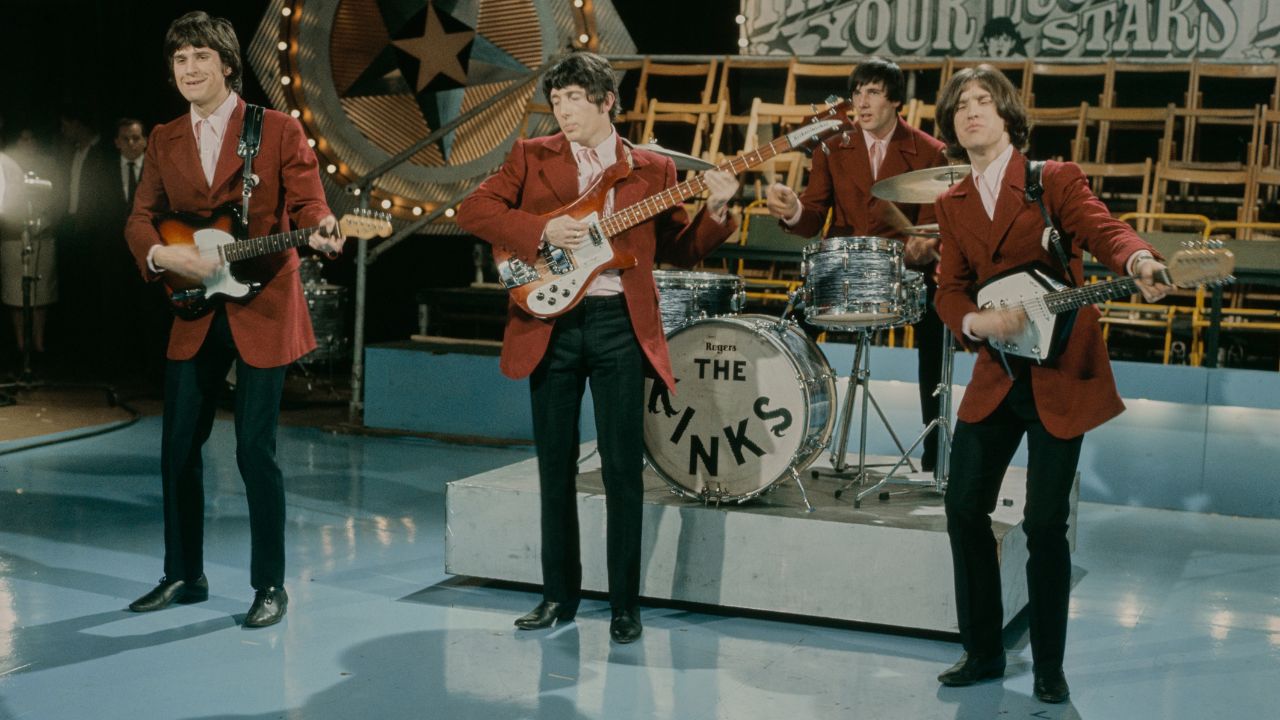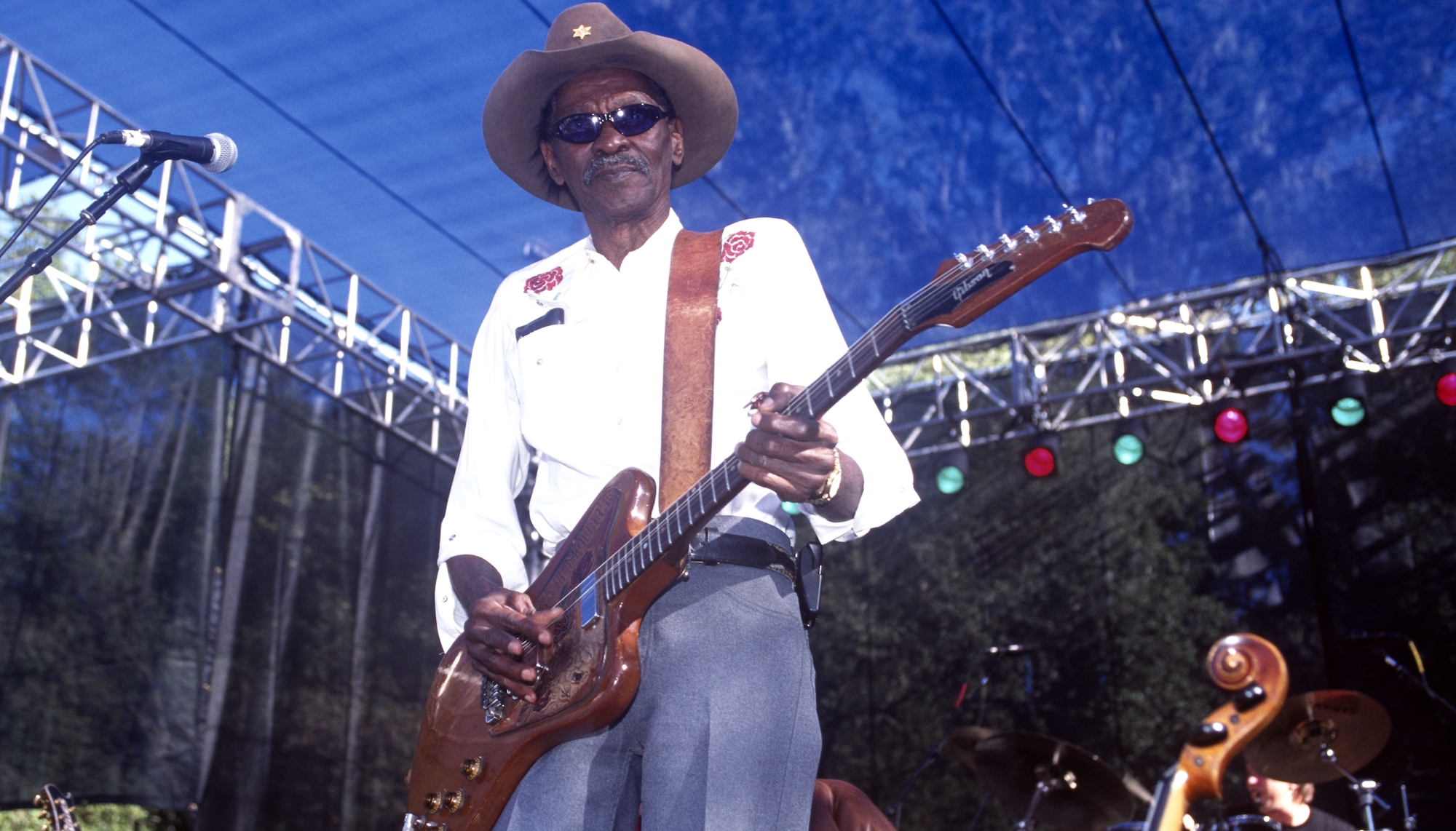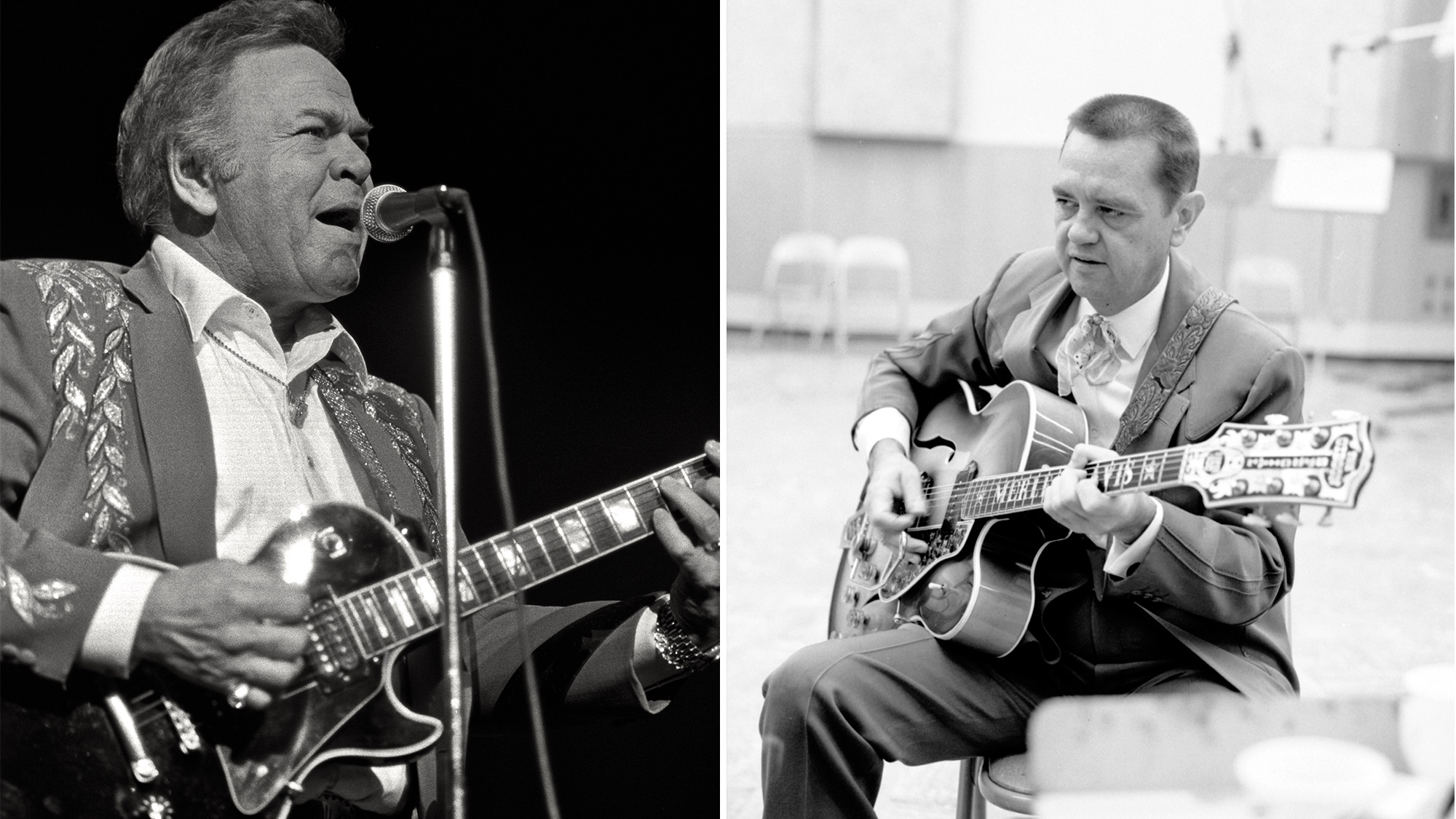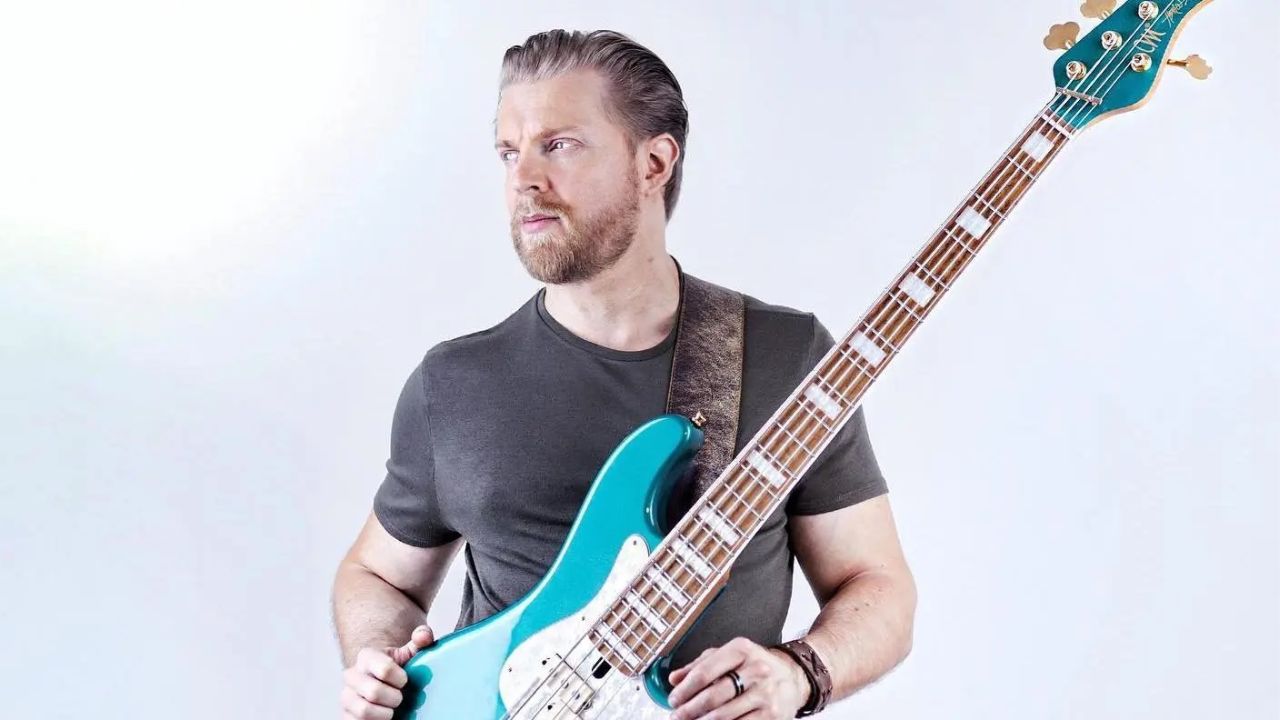Interview: Taking It to Eleven with Hinder’s Joe Garvey and Mark King
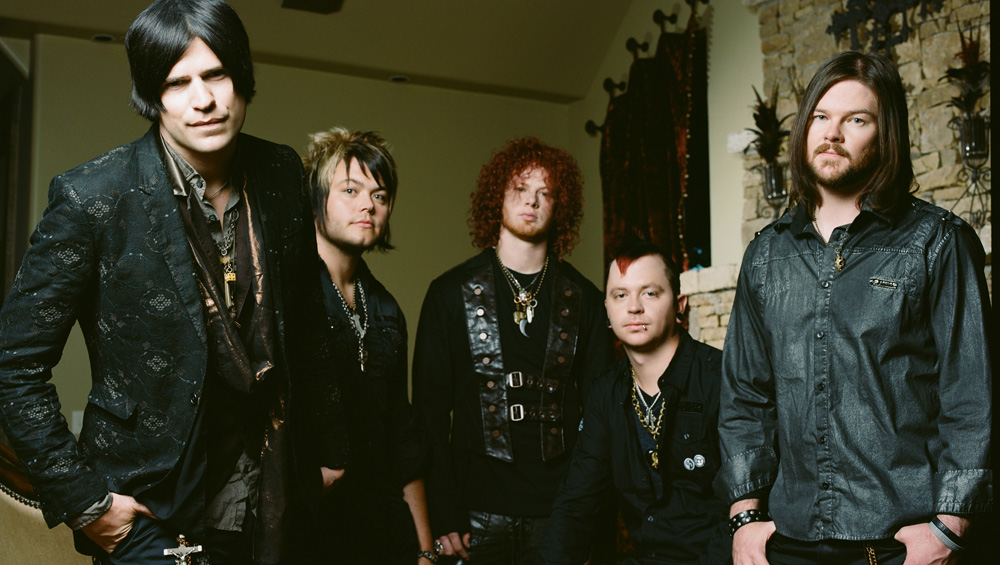
Few bands are as loved and loathed as Hinder — drummer Cody Hanson, vocalist Austin Winkler, bassist Mike Rodden and guitarists Joe Garvey and Mark King — and they wouldn’t have it any other way.
For every negative review the band has received, they are adored tenfold by millions of fans who embrace their gritty, yet melodic, hard rock sound.
Hinder’s roots are in Oklahoma, where a chance meeting with Winkler at a fraternity party hosted by Hanson and Garvey led to a jam session that became a band with the addition of King and Rodden.
As is often the case with guitar teams, Garvey and King are opposites in many ways. Hinder is Garvey’s first real band and his roots are in the classic rock of Metallica and Guns N’ Roses. King played piano as a child, was a music major in college, pursued a master's degree in composition and graduated with a degree in audio engineering. He cites Nirvana and Weezer as early influences. When they bring their differences to the Hinder table, however, there’s a perfect balance of styles.
Still touring their latest album, All American Nightmare, which was primarily recorded in Hanson’s Bar Code Studios, where he served as co-producer with Kevin Churko, Hinder recently found themselves with a few rare days off. Garvey and King phoned in separately while on break, but provided quite a bit of common ground.
When the two of you are working on parts, does the guitar sometimes determine the direction of the song?
Garvey: It depends whether it’s a ballad or a heavy track. We love to write the heavy rock songs, but we also have to keep the ladies happy with some ballads! [laughs] It depends on what kind of turns out. We toss a riff or a chorus back and forth and you never really know what’s going to happen until that moment.
Get The Pick Newsletter
All the latest guitar news, interviews, lessons, reviews, deals and more, direct to your inbox!
King: It can go either way. With songwriting, you never know when the inspiration will hit. You might play acoustic and think it would sound good with some distortion. It depends. Some songs are more suited to acoustic guitar to paint the scene that the lyrics portray.
Did anything on All American Nightmare take a 180?
Garvey: Oh yeah, absolutely. On “Waking Up The Devil” we rewrote the entire chorus from a riff that we were working with. Once you get going in the studio, you never know. It’s happened on all of our albums. Sometimes we add a whole new verse to complete the story. It definitely changes throughout the process.
King: “Waking Up The Devil” is a perfect example. We went in to lay down the guitar parts, and the next thing I know they had different ideas. The next day, I came in and I didn’t even recognize the song. That beginning lead part is so cool; the bends on the strings weren’t in there originally, and when they were put in, it changed the entire song and gave it a whole new attitude.
What do the guitar parts and solos need to do within the context of Hinder’s music?
Garvey: We want to have a lot of feel and that hook that everybody remembers. A lot of players try to do a solo at 100 mph, but there’s no feel and no finesse to what they’re doing. Slash was a huge inspiration for me, and his playing has those hooks that people hold on to.
King: I think Joe’s style is definitely the signature of our band. He’s been inspired by players like Slash, and I watch Joe really work his ass off to get better. Our audience loves those solos, so they’re definitely important to this band. I think our fans identify with Austin’s vocals and Joe’s guitar work.
How were your parts on All American Nightmare recorded?
Garvey: We recorded this album through Eleven racks. It was our first time using them, and we fell in love. We also use them live and they’re awesome. They keep everything pretty consistent with being indoor and outdoor and small and large places. With technology these days you just need a high-powered computer and a bunch of programs and you can’t tell the difference. It’s really incredible.
King: It was all Eleven and it’s amazing. I have Eleven at my house, too, and I play with it all the time. Eleven sounds perfect, and the tones you use in the studio, you’ve got them there for live purposes so it sounds as close to the studio version as you can get. I just plug straight in, send it through the Pro Tools rack and I’m ready to go. Live, I think our crew definitely appreciates it because we don’t have all the cabs in our trailer and it’s easier to load in and out. I still love the look of four Marshall cabs up there — that’s just rock 'n' roll — but we wanted to go in a different direction, a new look and save room in the trailer, so Eleven was win-win.
What do you incorporate into your practice?
Garvey: I’m always trying to think of new exercises and things to help me improve: finger exercises, speed exercises, picking up books, looking at stuff online. You can’t learn enough. There’s always something new to work on, even learning other people’s songs just to practice to.
King: I learned this practice technique from Sal Costa of My Darkest Days, and that’s another thing to do on tour: Always hook up with the guitarists from the other bands, because you might learn something new. So the finger technique, you start on the sixth string and go 1, 2, 3, 4, then go to the next string down 1, 2, 3, 4, all the way to the first string. Slide up to the second fret and do the same thing, then go back to the sixth string and do that all the way up and down the fretboard until you get to the 12th fret. That’s your first day of technique. The next day, instead of 1, 2, 3, 4, you go 1, 2, 4, 3, all the way up and down. It teaches your brain to do things you wouldn’t really think about. The next day it’s 1, 3, 2, 4, and every day for 30 days you’ll start on different things. When you get done with your first finger, you go to your second finger and go 2, 3, 4, 1, and every day just keep on doing that. So I apply that, for instance 1, 2, 3, 4, let’s say I’m in the key of C major, I would go fifth fret on the first string would be an A, and the next finger would be on the sixth fret on the second string and you’d go three and four on the first string and you apply that within different scales.
Speaking of Sal, here’s a comment he made about solos: “You have to always take into account that maybe 3 percent of the people in the crowd are music nerds like myself and the other 97 percent just want to hear the song.”
Garvey: He’s right. I definitely think about that in the studio. As far as live, everything happens so fast that we don’t even really think about it. We don’t want to make anything too complex because no one really listens to that. We want to get that feel-good song that everybody remembers and loves to sing along with. We think about being more complex in the studio, but onstage you just want to keep things fun and simple.
King: That 97 percent is just listening for the vocals and they’re, like, “I like that song. It has a good beat.” It’s the same beat over and over — it’s just a different kick pattern. It’s all 1, 2, 3, 4. It’s all simple stuff, really; you break music down and it’s all pretty simple mathematics. As far as playing, I mess around every once in a while and play some squeals when I’m not supposed to. Joe knows it and he’ll look over at me and start smiling, but no one in the audience has a clue. It’s fun. You can take it as far as you want, and as long as we’re not doing Satriani stuff with complex time signatures, our audience is going to be there as long as Austin’s vocals are on it. We’re simple. We count to four and we start over and we usually don’t venture off from that!
For more about the band, visit HinderMusic.com.
— Alison Richter
Alison Richter interviews artists, producers, engineers and other music industry professionals for print and online publications. Read more of her interviews right here.
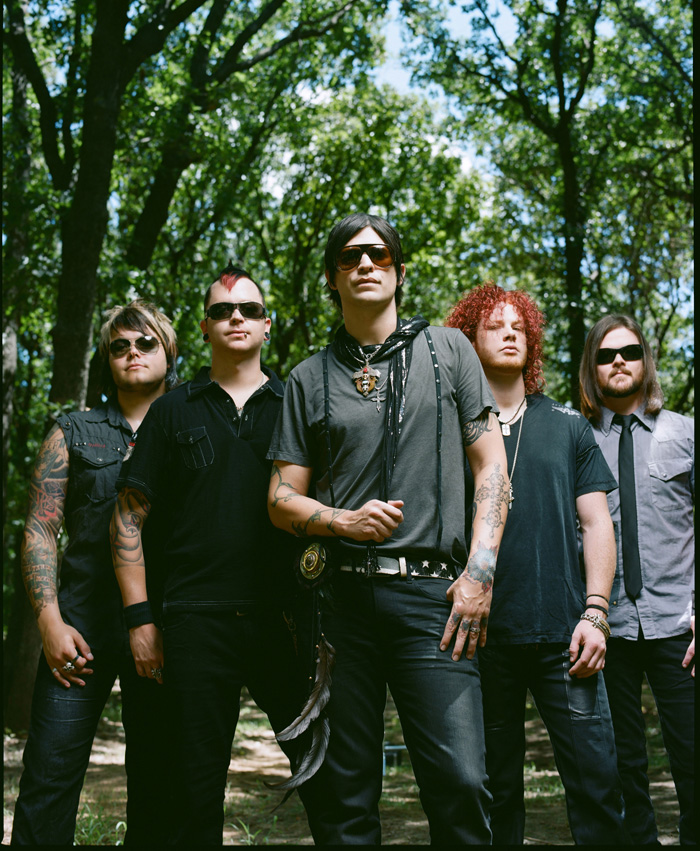
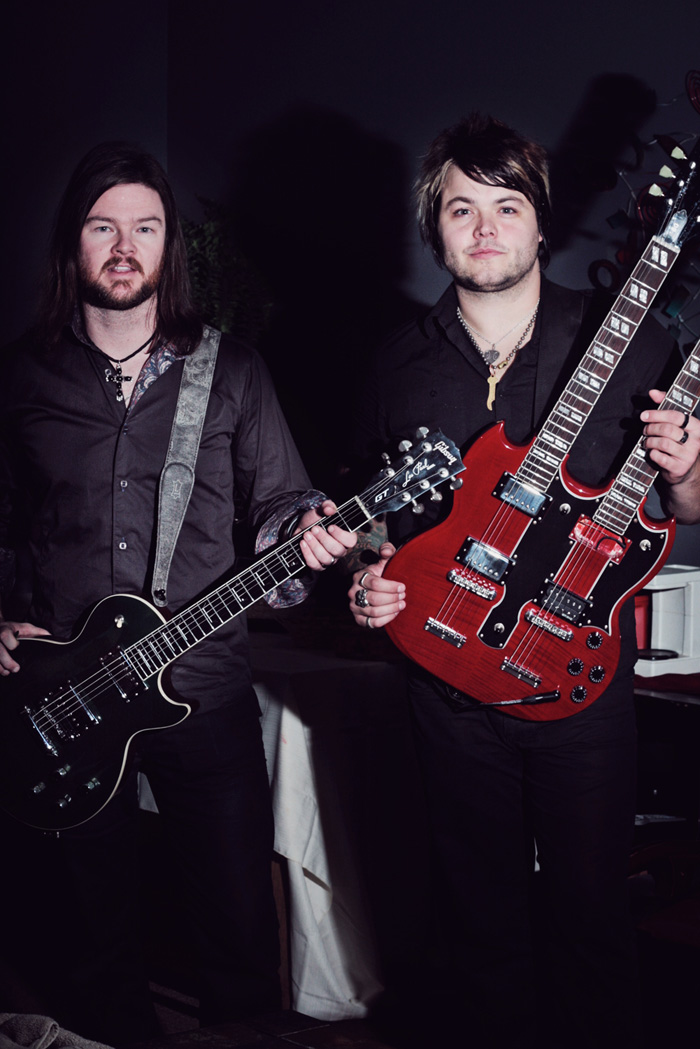
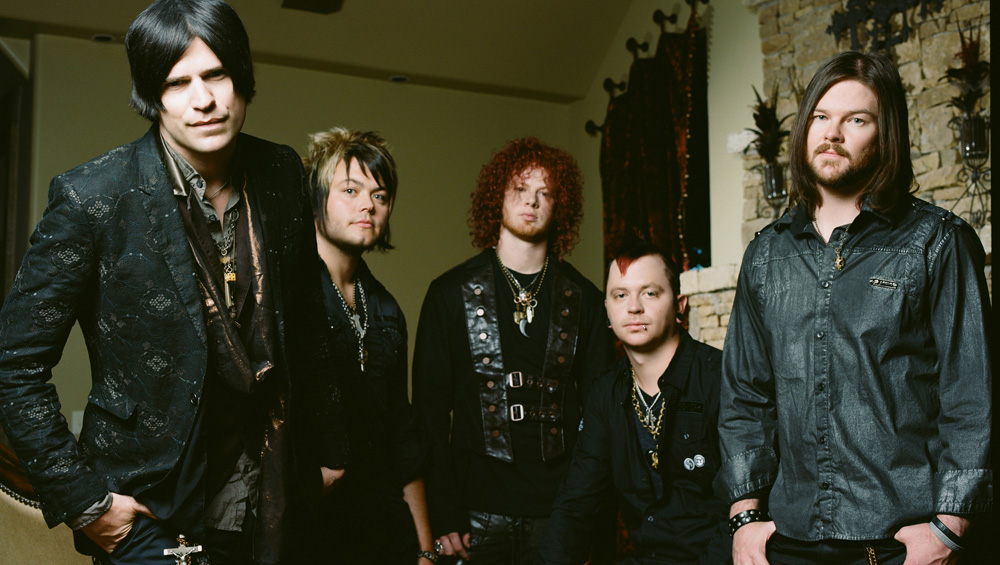
Alison Richter is a seasoned journalist who interviews musicians, producers, engineers, and other industry professionals, and covers mental health issues for GuitarWorld.com. Writing credits include a wide range of publications, including GuitarWorld.com, MusicRadar.com, Bass Player, TNAG Connoisseur, Reverb, Music Industry News, Acoustic, Drummer, Guitar.com, Gearphoria, She Shreds, Guitar Girl, and Collectible Guitar.
“Chuck Berry's not a very good guitar player. He's a clown. He runs all over the guitar, just like any one of these old rock players would do, and makes no sense”: Clarence “Gatemouth” Brown pulled no punches when speaking about his fellow guitar heroes
“I said, ‘Merle, do you remember this?’ and I played him his song Sweet Bunch of Daisies. He said, ‘I remember it. I've never heard it played that good’”: When Roy Clark met his guitar hero
